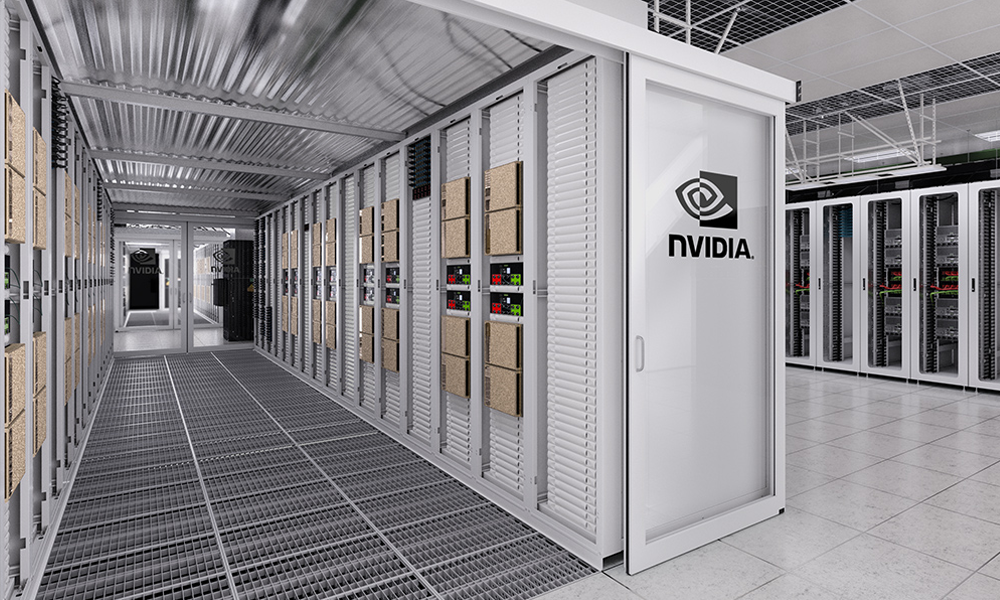npmgraph/npmgraph: A tool for exploring NPM modules and dependencies @GitHub
Saturday, September 09, 2023
Nvidia AI "platform": a new IBM?!
Wow! Another fascinating story from @Acquired podcast, a must listen!
part 3 of story about Nvidia business (with links to Apple, Spotify, Google, YouTube etc)
Nvidia: The Dawn of the AI Era: The Complete History and Strategy
"...Over the past 18 months Nvidia has weathered one of the steepest stock crashes in history ($500B+ market cap wiped away peak-to-trough!). And, it has of course also experienced an even more fantastical rise — becoming the platform that’s powering the emergence of perhaps a new form of intelligence itself… and in the process becoming a trillion-dollar company.
Today we tell another chapter in the amazing Nvidia saga: the dawn of the AI era."
Today we tell another chapter in the amazing Nvidia saga: the dawn of the AI era."
here are previous, equally great episodes!
Nvidia Part I: The GPU Company (1993-2006): The Complete History and Strategy
links: Episode sources
quote: “The future is already here, it's just not evenly distributed." is fully applicable here!
here is the "real deal" keynote with all the details, very inspirational, a must watch!
NVIDIA Keynote at COMPUTEX 2023 - YouTube
NVIDIA Keynote at COMPUTEX 2023 - YouTube
and even most recent presentation
Nvidia Cloud Data Centers
Nvidia is now also directly selling "Cloud Data Center" solution,
hosted by major cloud providers (Microsoft, Amazon).
Nvidia is not only a major computer hardware provider (up to 70% margins!)
but also, a real "platform" including software and integrated cloud solutions,
something that was a major attribute of IBM in its best days.
but also, a real "platform" including software and integrated cloud solutions,
something that was a major attribute of IBM in its best days.

Nvidia stock price

Tech Platforms
In case of Nvidia "luck" and "quick success" there was a long and persistent investment in the "platforms" that are now finding effective use everywhere.
The opportunity here: AI and related data processing.
Please listen to part II of the podcast story for the details.
The word "PLATFORM" is becoming trendy.
"1. a raised level surface on which people or things can stand"
A good platform provides a lot of value, and after significant investment switching cost becomes high.
On the other side a new, better, platform provides a significant advantage,
so much so that not adopting a better platform on time is often a cause of failed businesses.
See: The Innovator's Dilemma
Will the next wave be "AI?"How many computers does the world need?
Case in point: after failing to adopt "mobile" platform trend on time,
Microsoft "survived" by managing to adopt "cloud computing",
and in processes significantly expanded its value in recent years.
It did a similar "pivot" before by accepting web / internet challenge,
and now it is doing it again by pushing to AI transition.
Microsoft "survived" by managing to adopt "cloud computing",
and in processes significantly expanded its value in recent years.
It did a similar "pivot" before by accepting web / internet challenge,
and now it is doing it again by pushing to AI transition.
IBM has created the first major "computing platform".
"During the 1960s and 1970s, the IBM mainframe, exemplified by the System/360, was the dominant computing platform, and the company produced 80 percent of computers in the U.S. and 70 percent of computers worldwide".Accordingly, IBM created, and captured, a lot of value, and enabled many successful businesses.
It was time of "turnkey" solutions including hardware, software, solutions, training, consulting.
It was time of "turnkey" solutions including hardware, software, solutions, training, consulting.
In the next wave of computing platform changes industry moved to smaller and much more affordable, while still relatively expensive, "minicomputers", during the 1980s, like those produced by Digital Equipment Corporation. A smaller price enabled a significantly larger market. That didn't replace the market for mainframes, but it did create many modern technology companies and solutions, including Oracle for example.
Next, in the 1990s the technology world was changed significantly again not one, not two, but three major computing "platforms": personal computers (PCs), "workstations", and "web/internet". It was again a case of much smaller price and much larger market, which created or expanded major tech companies like Microsoft and Intel, Sun and Cisco, and then Netscape and Google. It was a real "revolution".
In mid 2000s things accelerated again with crating "mobile" platforms: IPhone and Android,
as well as "cloud platforms" like AWS, Azure and GCP.
And since, the technology world is waiting patiently for a new "tidal wave",
with many incremental and important improvements, like "social", IoT, blockchains...
with many incremental and important improvements, like "social", IoT, blockchains...
Will the next wave be "AI?"
And could Nvidia become the "next IBM?"
It is very unlikely that any single company (except TSMC that manufactures the most advanced "chips") can have market dominance anywhere near IBMs at that time.
But it is certainly possible that Nvidia can dominate high-end computing solutions for a while.
Google tensor-chips, as well as Tesla Dojo, and Amazon and Apple chips may compete.
China is investing heavily to its alternatives, but very unlikely to be anywhere near Nvidia, for now.
It is very unlikely that any single company (except TSMC that manufactures the most advanced "chips") can have market dominance anywhere near IBMs at that time.
But it is certainly possible that Nvidia can dominate high-end computing solutions for a while.
Google tensor-chips, as well as Tesla Dojo, and Amazon and Apple chips may compete.
China is investing heavily to its alternatives, but very unlikely to be anywhere near Nvidia, for now.
How many computers does the world need?
In the early 1940s, IBM's president, Thomas J Watson, said:
"I think there is a world market for about five computers."
How to create a "Platform?"
(from top acorn quotes)
Human society runs on "powerful stories". And a story is an idea, a vision, well presented.
And the one who presents the vision, idea, dream, story is a leader.
But the vision is not enough, a productive action is necessary,
And the one who presents the vision, idea, dream, story is a leader.
But the vision is not enough, a productive action is necessary,
and a capable team/organization to execute the vision, and the market that needs the results.
Nvidia has all the elements.
Nvidia has all the elements.
vision / lead (tree trunk)
team / organization (tree root)
Subscribe to:
Comments (Atom)
